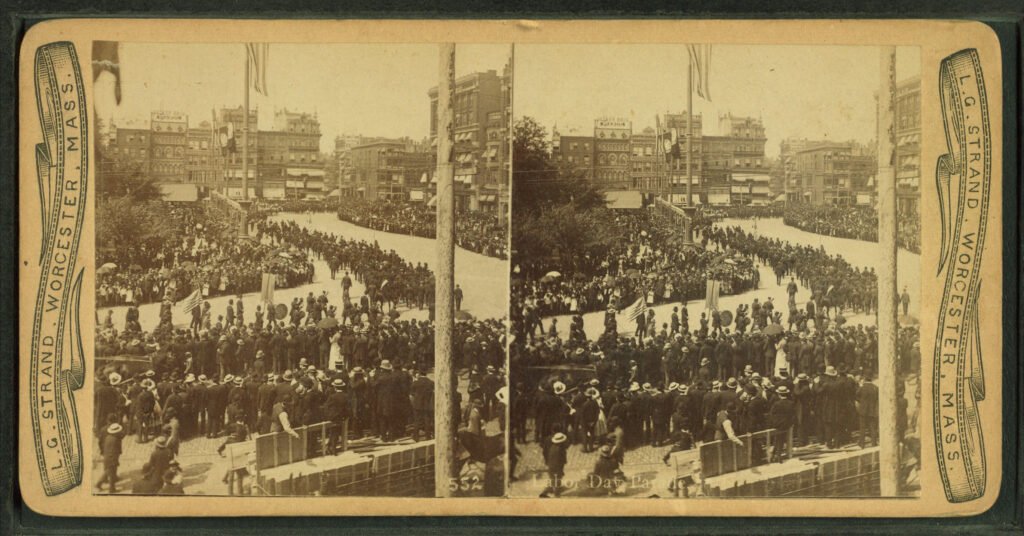
Labor Day is a holiday honoring working people. It is observed as a legal holiday on the first Monday in September throughout North America. Labor organizations sponsor various celebrations, but for most people it is a day of rest and recreation. It also has become a symbol of the end of summer. In European and other countries, Labor Day is May 1.
The idea of setting a day aside to honor the country’s working people was conceived in 1882 by Peter McGuire, founder of the United Brotherhood of Carpenters. In 1887, Oregon became the first state to make Labor Day a legal holiday, after which President Grover Cleveland signed a bill in 1894, making Labor Day a national holiday.
For most of humanity, people have had to work. Even the first parents of the human race, Adam and Eve, had responsibilities in the Garden of Eden. An accurate reading of the Genesis story shows us that, from the beginning, it was God’s intention that Adam should tend the Garden. Adam’s attitude toward work changed after the fall.
Work is essential because many worthwhile things have to be earned. Few things in life are free.
Work is not only essential to human survival, but also to our mental and emotional well-being. Some of the healthiest people are those who enjoy their work. Work is also important for self-esteem and personal dignity. It not only drains surplus energy, which can be a source of tension if not properly used, but also kindles hope and banishes morbid discouragement. When hope vanishes, life is not worth living. Idleness causes stagnation, and anything stagnant is hurtful. Purposeful, creative work gives one a sense of worth and dignity. Worthwhile work enriches personality.
Unemployment can be a serious problem in many respects. Sociologists tell us that unemployment has very high social costs. Each time the unemployment rate increases, suicides and murders increase.
Work is also related to people’s sense of satisfaction about life. Lack of purposeful action brings about boredom, and boredom can be deadly to the morale of individuals. There is a great deal of truth in the saying, “The idle brain is the devil’s playground.”
Work is also good therapy for those who are in distress. Part of the secret for dealing with grief is to carry on with the daily routine of life. Those who are not capable of dealing with distress shut themselves off from the world of responsibility and relationships.
Of course, not all people have enviable and satisfying jobs. Some kinds of work are not easy; some kinds of work are thankless. Regardless of the nature of work, it becomes meaningful when people understand that their lives are part of a greater divine plan. God created humans in His own image. God is a creating, sustaining and working God. Jesus said in John 5:7, “My Father is working still, and I am working.” How we view our work is a religious question. If people view life as meaningful and purposeful, then they will probably view their work as having rhyme and reason as well. However, if life is simply a matter of passing time, getting by and merely existing, then it is doubtful that people will get excited about the roles they play in life.
Work has a spiritual purpose. Each individual has a place in God’s plan for the world. In fact, human beings are partners with God in the provision of the world’s needs. As part of the plan of God, our work is a ministry, a mission and a sacred endeavor. We are partners with our Creator in the stewardship of earth’s resources and in supplying the needs of His children.
Viewed from this perspective, work is not a curse, but a blessing!



Be the first to comment